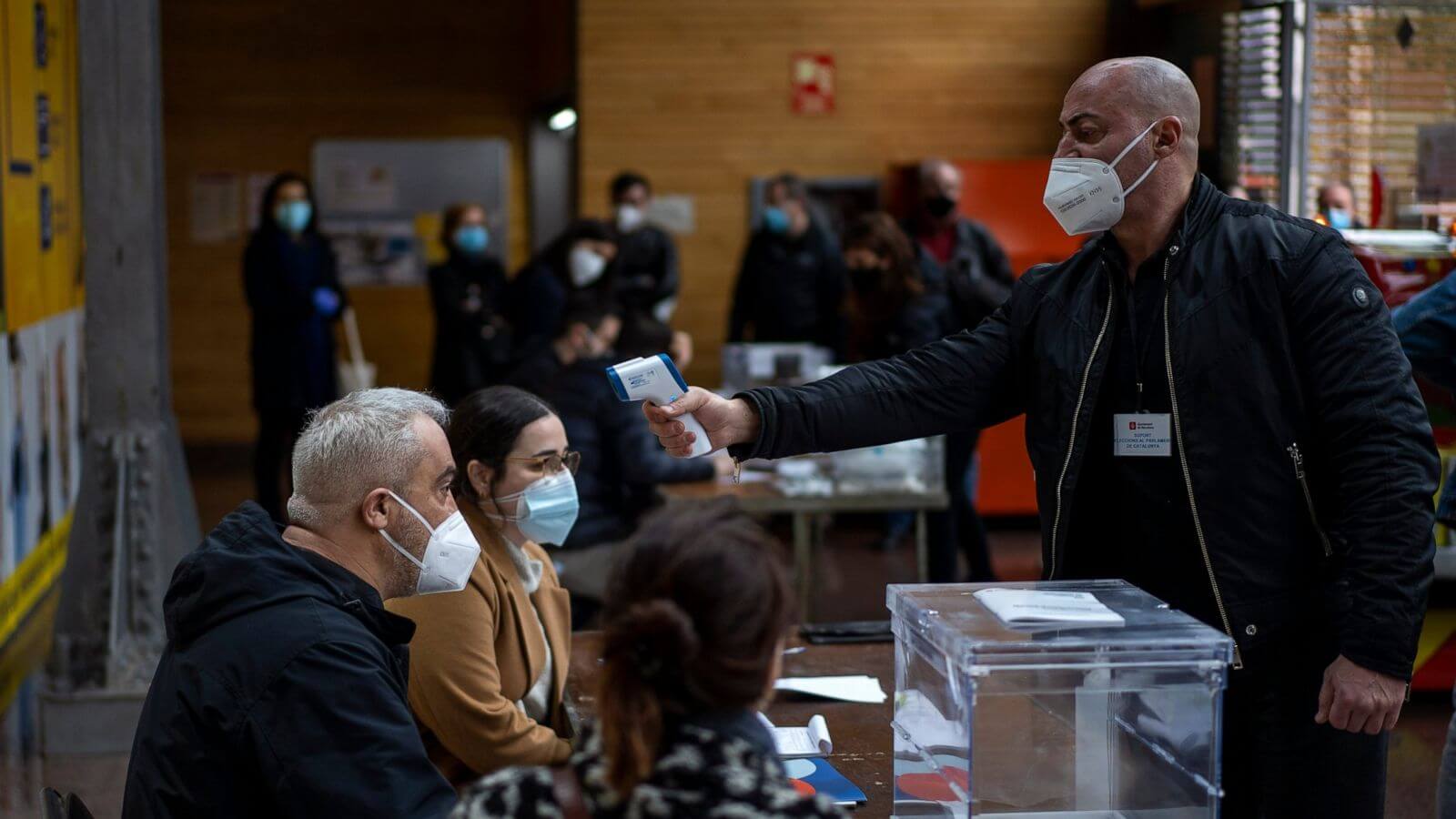Amidst the third wave of the ongoing COVID-19 pandemic, the Catalonia region of Spain conducted its parliamentary election on Saturday. A major obstacle in the election was the widespread concern about the spread of the COVID-19 virus at the polling stations, which caused voter turnout to drop to 55% from 79% in the 2017 elections. While the elections were scheduled to be conducted next year, they were pushed forward following the ousting of the region’s President, Joaquim Torra, by the Spanish courts for failing to abide by the election board’s order urging him to take down hoardings criticising the arrest of the Catalonian separatist leaders in 2016.
The result of the election was announced on Sunday, which declared the pro-Spain Socialist Workers’ Party as a victor by a narrow margin. However, the region’s secessionist parties secured a wider control of the regional parliament, with their number of seats increasing from 70 out of 135 in 2017 to 74. This shows that despite the COVID-19 pandemic and the failed secession bid in 2017, the pro-separatist sentiment continues to exist. Yet, the ongoing in-fighting amongst these parties may taint their collective vision to form the government.
Hence, despite emerging as the victor in the elections, the Socialist Party, which is led by the country’s former health minister, Salvador Illa, will require the support of several political parties to successfully form the government. After the announcement of the result, Illa said, “This is a clear victor that has one reading: It is time to turn the page, to write a new chapter, to reach out to one another and advance together.”
The key contenders of the election were the Socialist Workers’ Party, the party that leads the central government in Spain, and the Republican Left of Catalonia, the separatist party that has been in power in the region for the past three years. Prior to the election, experts predicted that irrespective of the political party that emerges as the victor in the elections, it is unlikely that the region would declare independence as it did in 2017, as the current movement is split between adopting a moderate and a confrontational approach. However, it would still be reflective of the people’s sentiment, indicating whether they favour the pro-Madrid faction or the secessionist factions.
In 2017, 2.25 million people from Catalonia participated in a referendum, with the region’s government campaigning for independence from Spain. 90% of Catalonians voted for independence. However, the Spanish Supreme Court declared that the vote was entirely illegal and in violation of the Spanish constitution. This resulted in the Spanish police pushing against individuals of the region who were assembling to participate in the vote by using rubber pellets and batons. The incident led to around 900 civilians being severely injured.
Since then, the tensions in the region have subsided, especially following the last elections, which were conducted just a few months after the referendum. In these elections, the anti-independence Socialist party secured the largest number of votes. However, the government was formed by the centre-right Junts per Catalunya and the left-wing Republican Left for Catalonia parties, who are the country’s two key rival secessionist parties.
Pro-Madrid Party Secures Marginal Win in Catalonia Elections for Regional Parliament
The pro-Madrid Socialist Party defeated the secessionist Republican Party in Catalonia's regional elections to form a minority government and dash hopes of independence from Spain.
February 16, 2021

SOURCE: ABC
